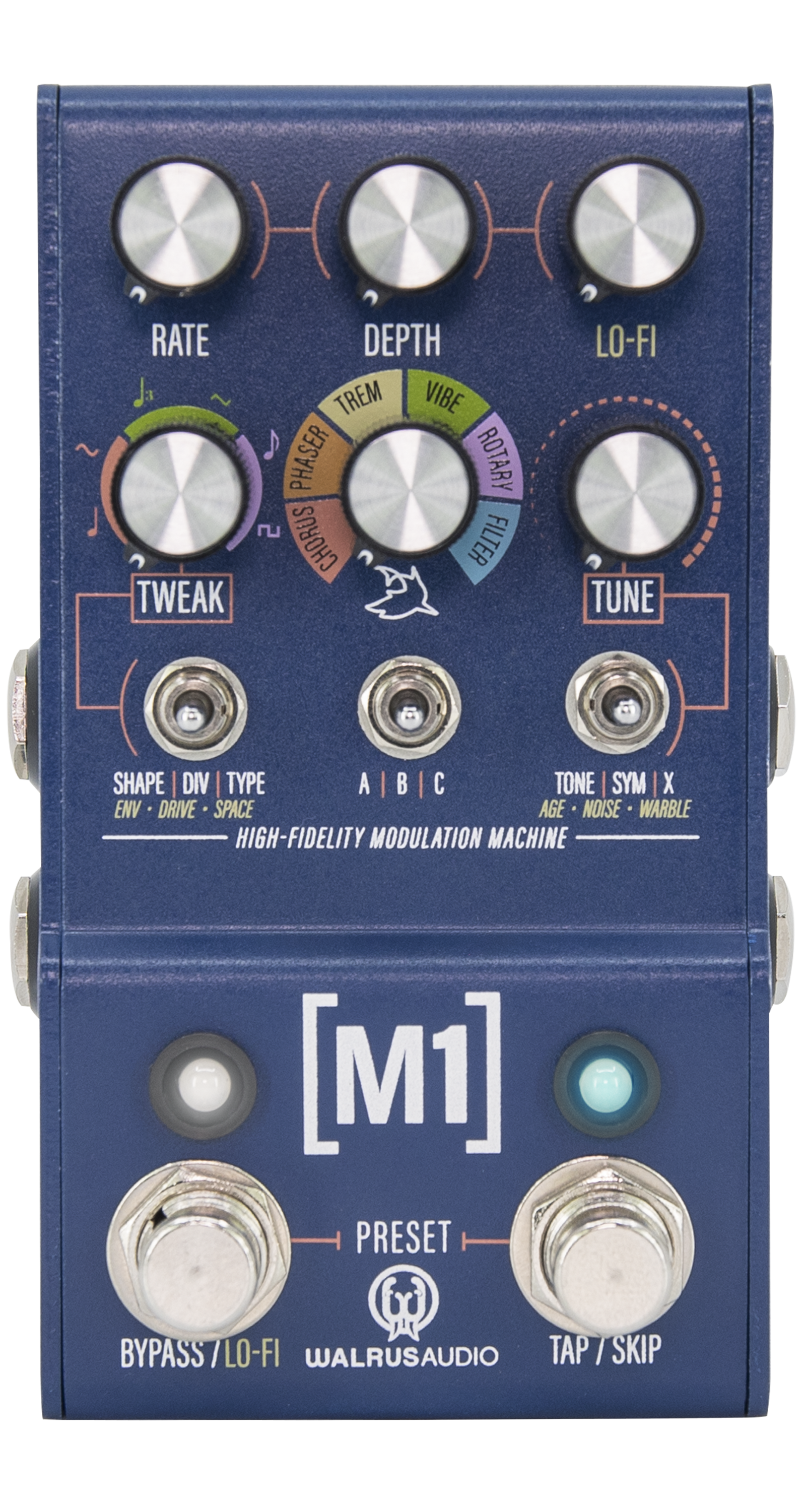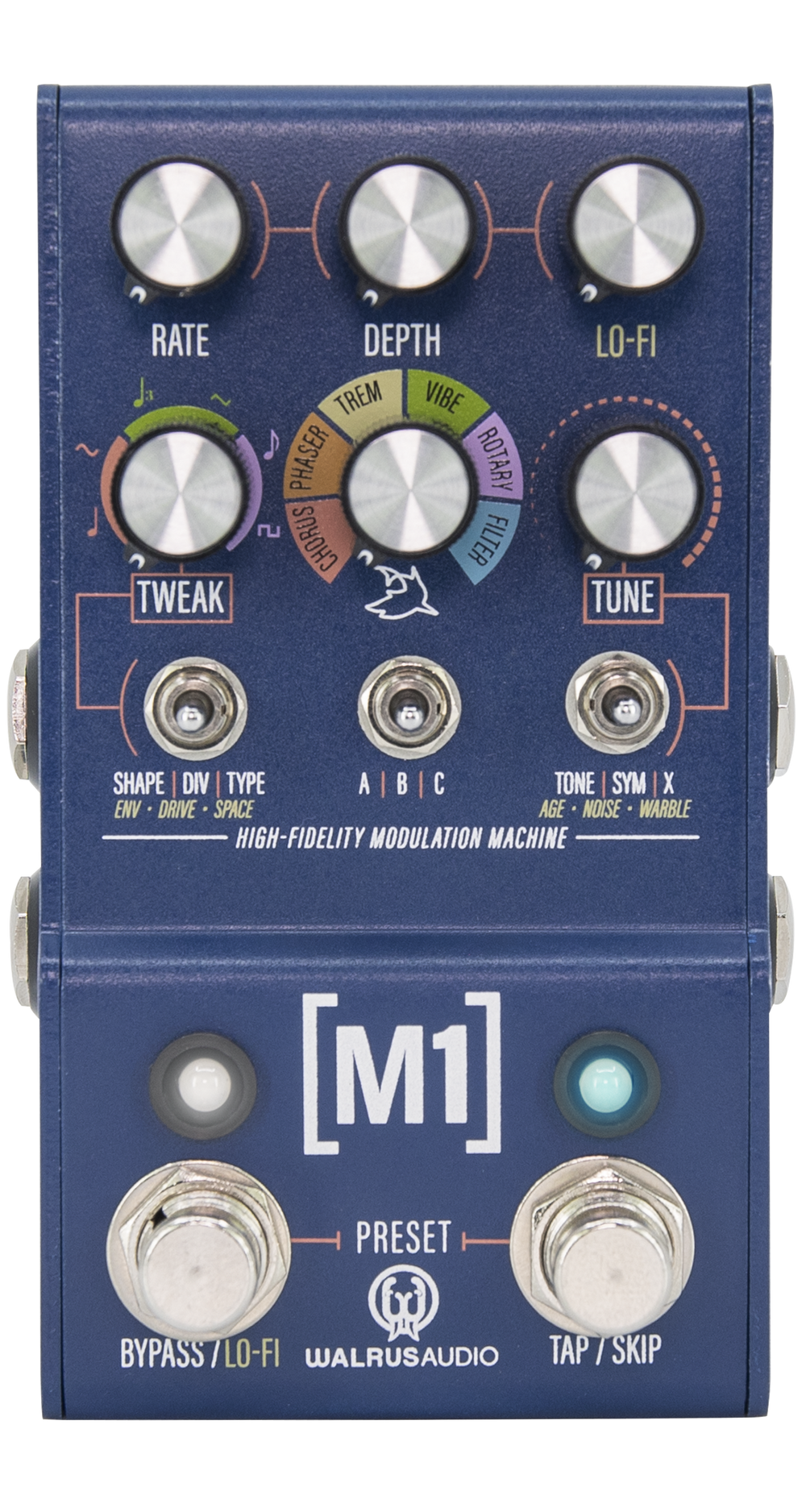MAKO Series: ACS1 Amp + Cab Simulator
View the MAKO Series: ACS1 Amp + Cab Simulator
FREE SHIPPING All orders over $75 get free 2-Day shipping!
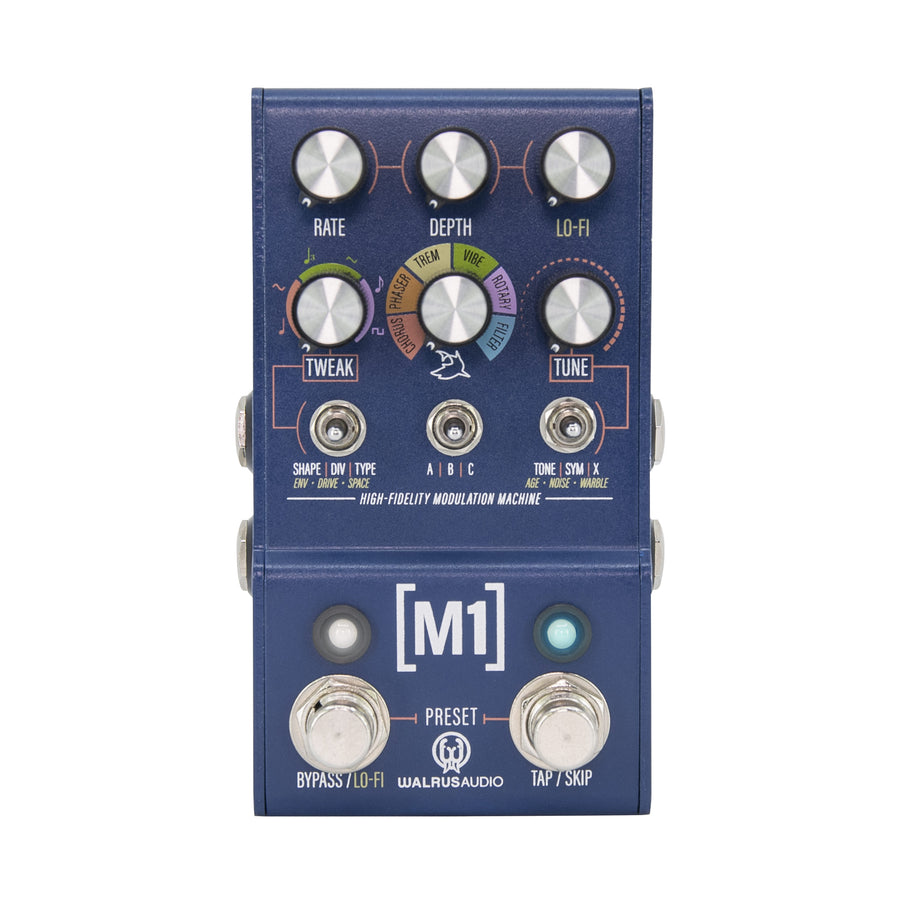
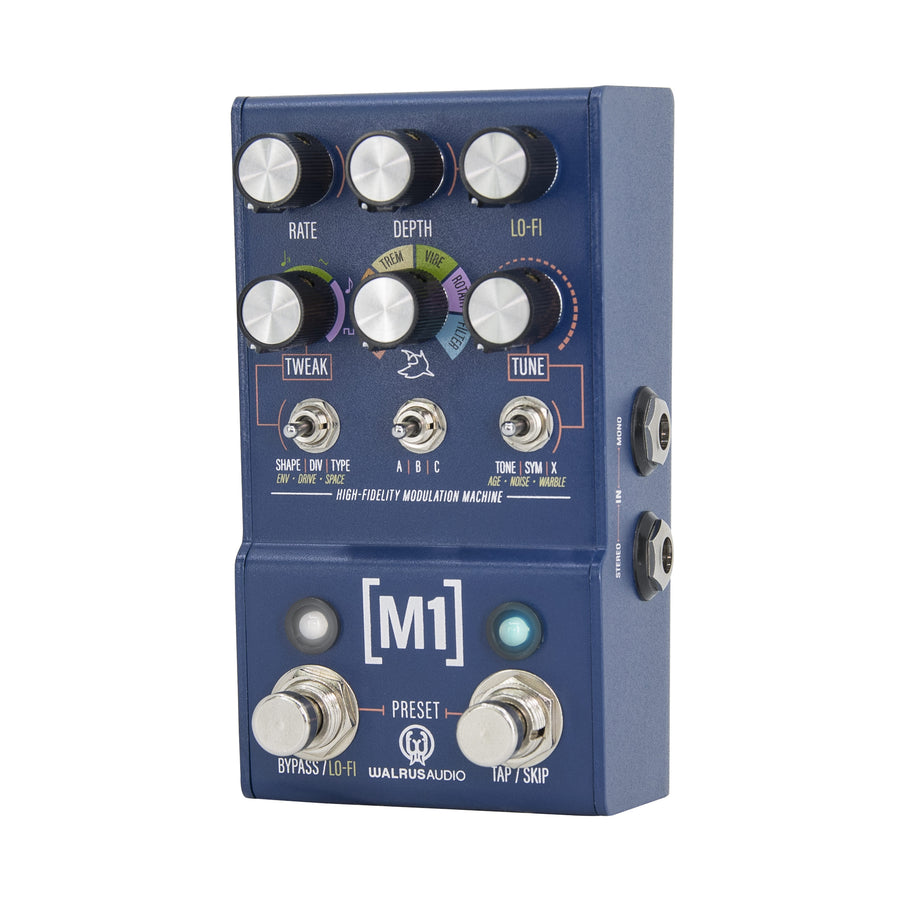
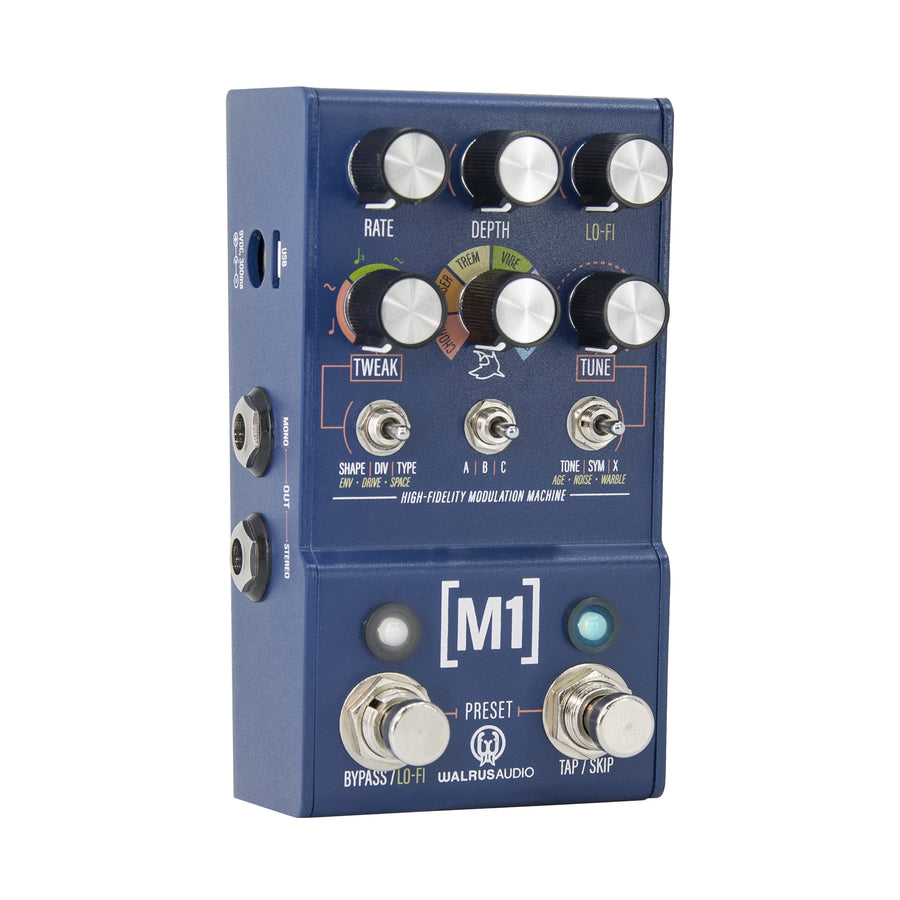
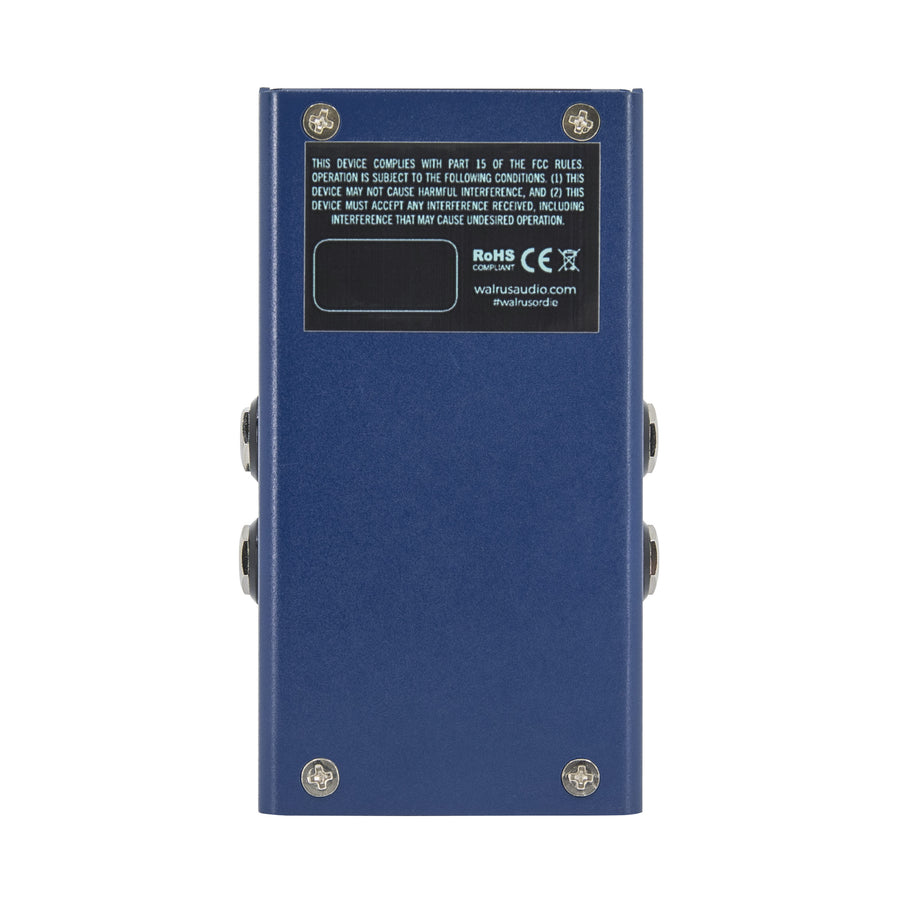
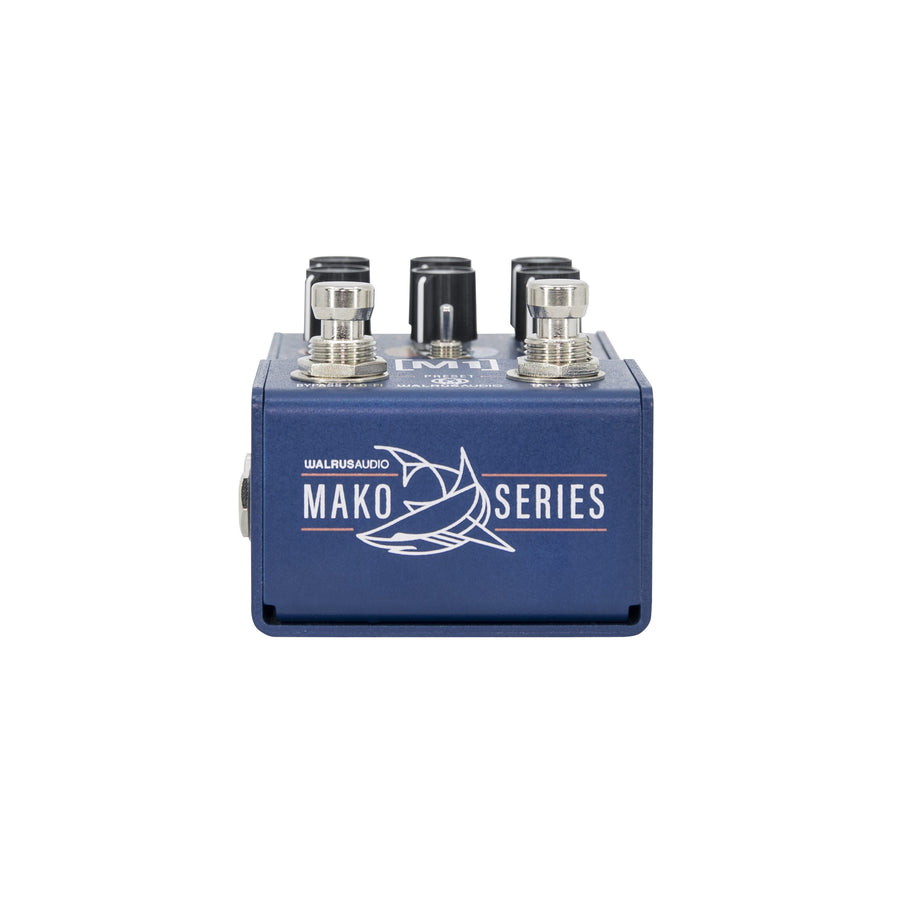
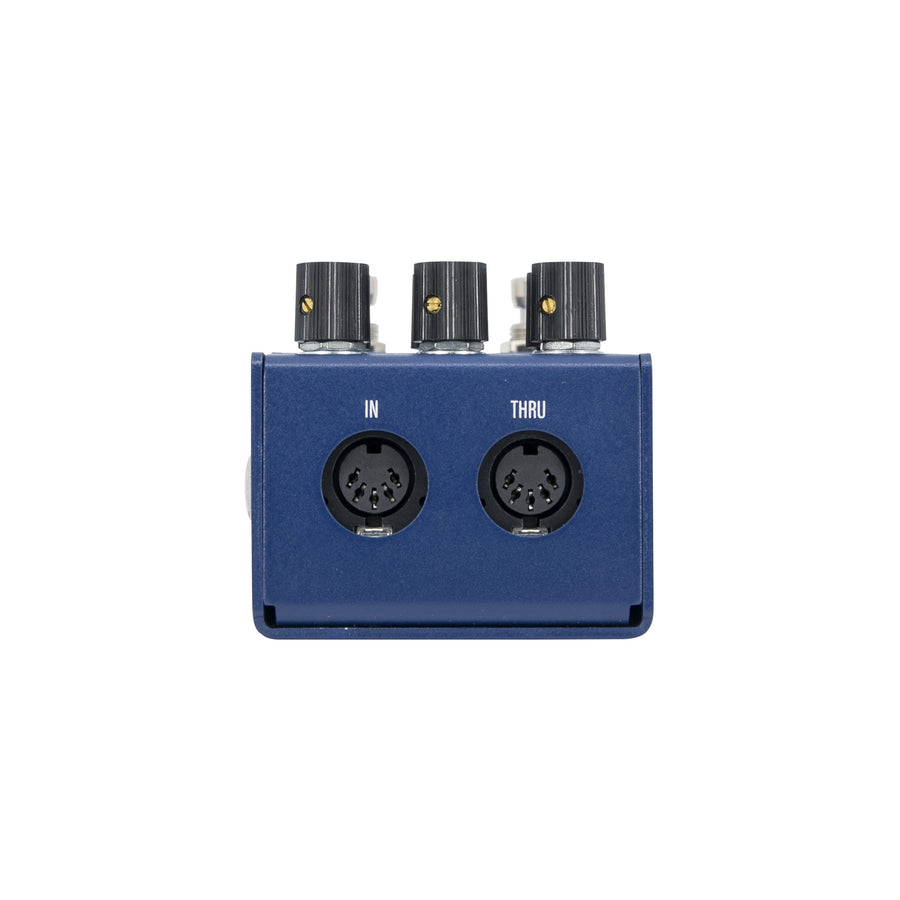
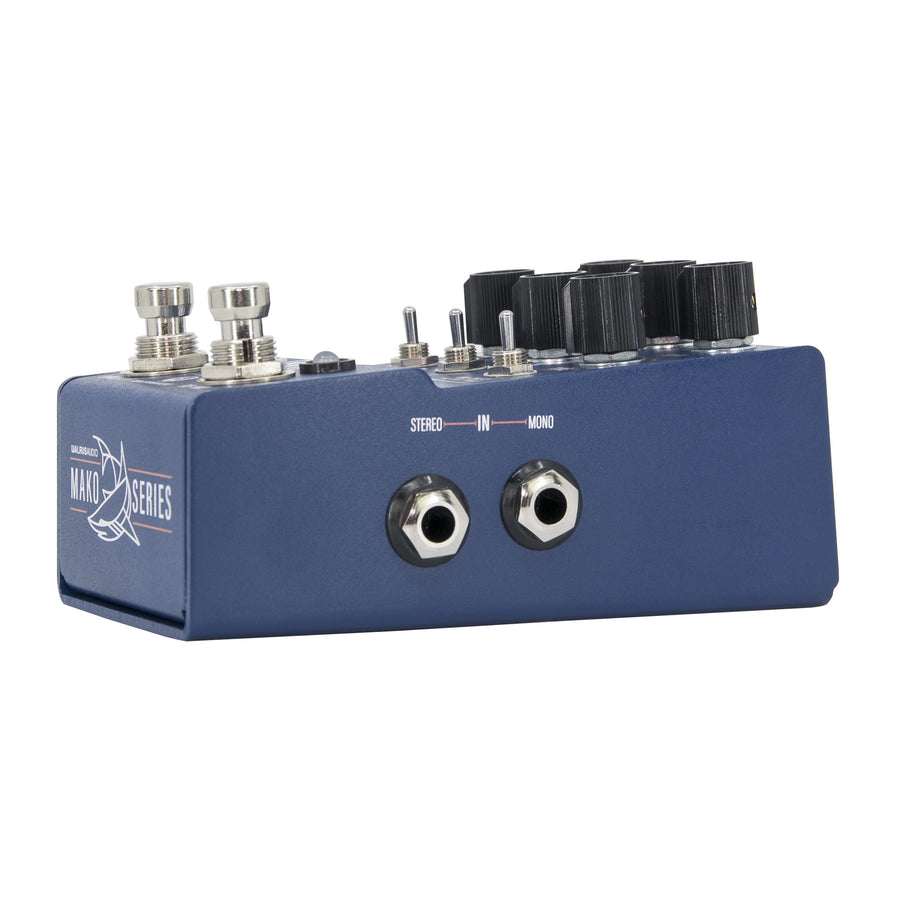
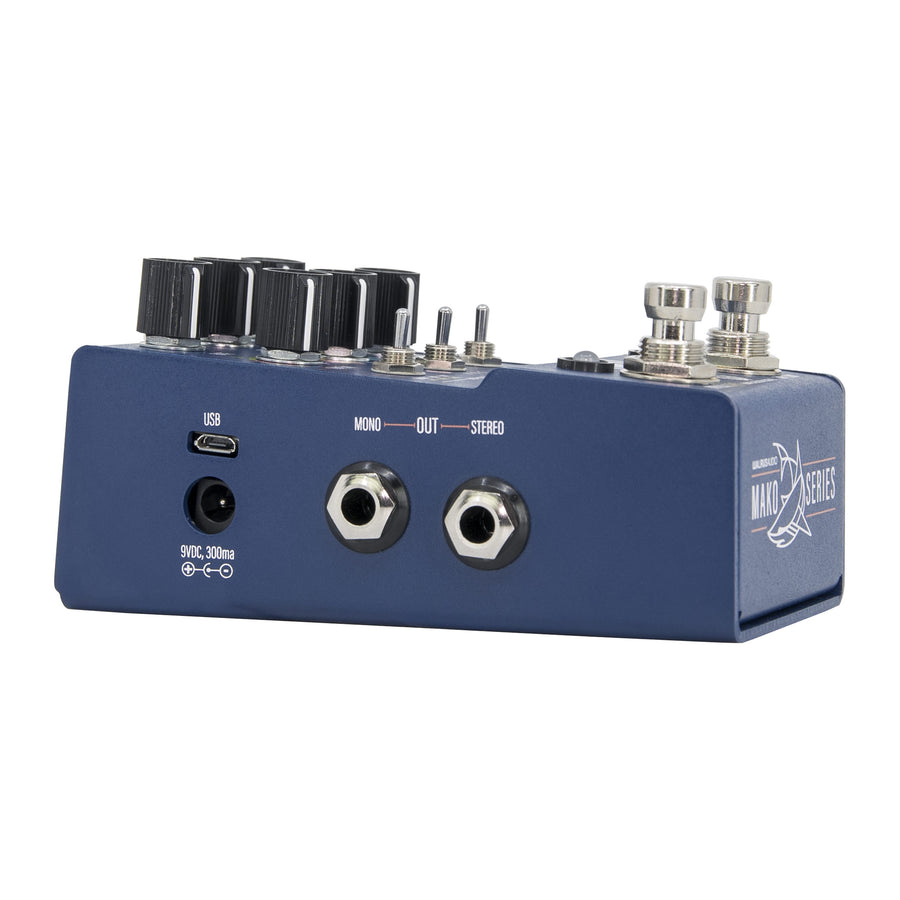
This product is discontinued and no longer available
Find subtle chorus to be vibrant and lush tri-chorus that will instantly teleport you to the 80s. Type I is a traditional chorus great for tight smooth chorus tones. Type II adds a second chorus with an offset rate and depth. Thanks to the constructive interface, it has a more dramatic character caused by essentially running two chorus pedals in series. Type III finds its roots in the classic tri-chorus effect running three chorus units in parallel for a lush multi-dimensional chorus.
X knob controls Lag to set the maximum allowed amount of pitch detuning.
Phaser -
Classic 70s phaser sounds we all know and love, with added features that you wouldn’t expect. Similar to the Lillian, Type I is a 2-Stage Phaser that produces a single notch to the classic mild phaser. Type II is a 4-Stage model producing 2 notches for a stronger effect. Type III is a phaser modeled after the unique tuning and LFO shape found in a Uni-Vibe.
X knob determines the amount of phase shifted signal that is fed back to the effect input.
Tremolo -
This program emulates a tremolo with three algorithms containing all the bells, whistles, and even a cherry on top. Type I is excellent for traditional sounds similar to optical and bias tremolos that raise and lower the entire frequency range – similar to the Monument in standard mode. Type II is a warm and cozy harmonic tremolo – similar to the Monument in harmonic mode. This unique sound is formed by raising and lowering your high and low frequencies opposite each other. Type III offers several predefined patterns for rhythmic sequenced pulsing tremolo.
X knob manipulates the phase of the left and right volume modulation for a wide stereo panning effect.
Shape and Symmetry in Type III (pattern Trem) select the pattern group and patterns within each group.
Vibrato -
Make good parts great with detuned, warbly, and vintage sounds that harken back to the 60s. Type I focuses on traditional vibrato sounds. Old record players inspire type II with classic RPM’s on the rate knob and some noise character you’d find in your dad’s old dusty Speedwagon LPs. The rate knob can select 33rpm, 45rpm, and 78rpm speeds in this mode. Type III is our take on the wow and flutter pitch characters found in old tape players. Warm and charming with a hint of nostalgia.
X knob (Standard and Vinyl) Stereo Phase: controls the phase of the right output in relation to the left output.
X knob (Tape) Flutter: control the depth of the flutter effect applied within the tape vibrato type. This is a faster fluttering type detune.
Rotary -
Because you can’t fit a Leslie speaker on your pedalboard, type I aims for that traditional watery sound of a well-oiled Leslie speaker. Type II only spins the horn but still plays the sound out of the drum. Type III only spins the drum but still plays sound from the horn.
X - Cab Simulation: controls the mix of a physical rotary cabinet model into your signal.
Filter -
Add tone-shaping movement to your signal with different modulated filters. Type I is a lowpass filter good for modulated darker tones. Type II is a highpass filter used to creatively modulate your low frequencies. Type III is a bandpass filter forming a sliding “window” of frequencies. Drive the filter frequency with the main LFO or do things like set the depth to zero and turn up the LO-FI envelope control to drive the filter frequency with your playing dynamics.
X knob controls filter resonance, bringing a more aggressive sound to the selected filter.
Tone controls the filter’s center frequency or starting frequency where the modulation is applied.
The Tune knob and toggle switch offer creative control over three additional modulation parameters and three “lo-fi” effects. These allow you to shape further each modulation program to taste. The lo-fi effects can add additional character and movement to your sound.
Each program can be fully customized to give you creative control over three different key modulation parameters as well as three “lo-fi” effects, allowing you to shape each program to taste.
The M1 offers multiple input and output configurations.
Each of the six programs on the M1 has three different types of that effect. With six different tweak-able parameters plus lo-fi options that can be applied and mixed in to each program then saved to a preset, that equals...well, some huge number of options to explore.
Find subtle chorus to be vibrant and lush tri-chorus that will instantly teleport you to the 80s
Type 1 - Traditional Chorus
Type 2 - Dual Chorus
Type 3 - Tri-Chorus
Classic 70s phaser sounds we all know and love, with added features that you wouldn’t expect.
Type 1 - 2-Stage Phaser
Type 2 - 4-Stage Phaser
Type 3 - Uni-Vibe
Trem with three algorithms containing all the bells, whistles, and even a cherry on top.
Type 1 - Traditional Trem
Type 2 - Harmonic Trem
Type 3 - Pattern Trem
Make good parts great with detuned, warbly, and vintage sounds that harken back to the 60s.
Type 1 - Traditional Vibrato
Type 2 - Vinyl Record
Type 3 - Tape Vibrato
Because you can't fit a Leslie speaker on your pedal board.
Type 1 - Traditional Leslie
Type 2 - Horn spin, drum sound
Type 3 - Drum spin, horn sound
Add tone-shaping movement to your signal with different modulated filters.
Type 1 - Lowpass filter
Type 2 - Highpass filter
Type 3 - Bandpass filter
